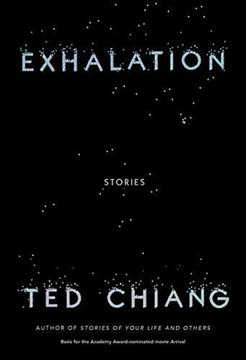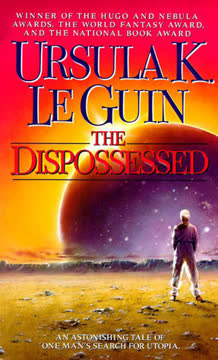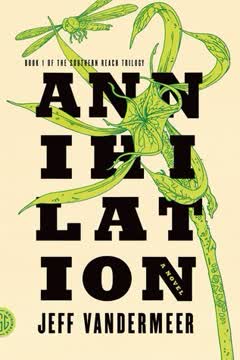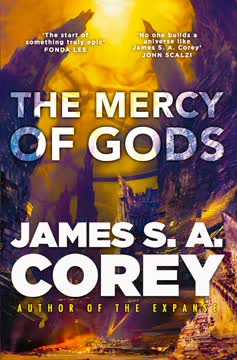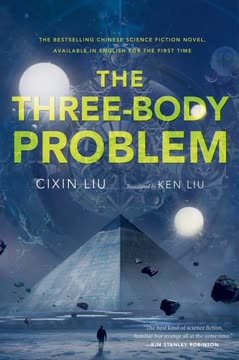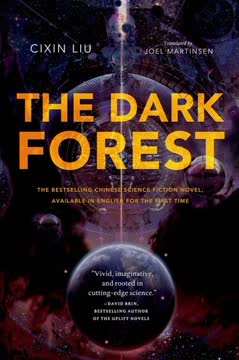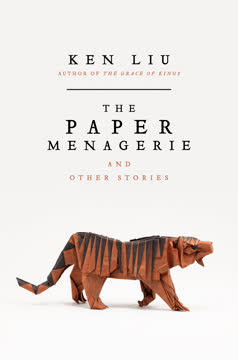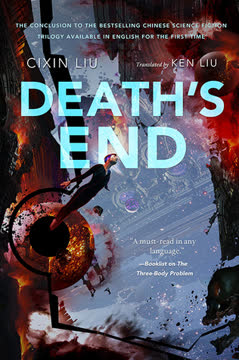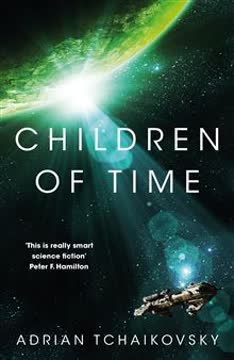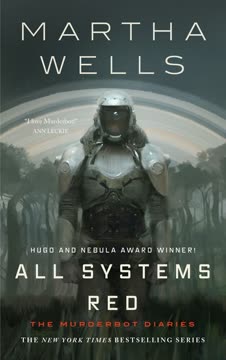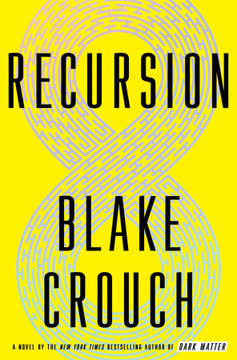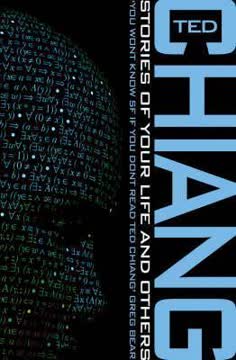Plot Summary
The Shop of Wonders
Fuwaad ibn Abbas, a fabric merchant in Baghdad, is drawn into a metalsmith's shop filled with marvels—astrolabes, water clocks, and mechanical birds. The shopkeeper, Bashaarat, is a learned man who claims to have mastered alchemy, not for gold, but for deeper mysteries. Bashaarat demonstrates a device called the Gate of Seconds, a hoop that allows one to reach a few seconds into the future. This is no mere trick; it is a manipulation of time itself. Fuwaad is skeptical but intrigued, and Bashaarat offers to show him something even more astonishing: the Gate of Years, a doorway that connects the present to a room twenty years in the future. The shop is a threshold between the ordinary and the miraculous, and Fuwaad stands on the edge of a journey that will challenge his understanding of fate, time, and regret.
The Gate of Years
Bashaarat's Gate of Years is a time machine, but not in the sense of adventure or escape. It is a mirror for the soul, a way to confront one's future or past. Bashaarat explains that stepping through the Gate allows one to meet their older or younger self, to see what has become of their choices. He shares stories of those who have used the Gate: some seek wisdom, others fortune, and some, redemption. The Gate is not a tool for changing fate, but for understanding it. Fuwaad is captivated by the possibilities, but also senses the danger—what if the future is fixed, and knowledge brings only sorrow?
The Fortunate Rope-Maker
Bashaarat recounts the story of Hassan, a humble rope-maker who uses the Gate to meet his future self. Guided by cryptic advice, Hassan avoids misfortune and discovers a hidden treasure, becoming a wealthy merchant. Yet, the treasure's origin is a paradox: Hassan learns of its location from his older self, who learned it from his younger self. The story is a meditation on fate, causality, and the mysterious ways in which our lives are shaped by our own actions and the advice we give ourselves. Hassan's happiness is not just in wealth, but in the wisdom gained from living his life twice.
The Weaver's Regret
Ajib, a weaver, envies Hassan's fortune and uses the Gate to seek his own wealth. He finds his older self living modestly, with a chest of gold hidden away. Ajib steals the gold from his future self, squanders it on luxury and love, but is ultimately robbed and left with nothing. Guilt and shame drive him to a life of thrift and self-denial, but happiness eludes him. The story is a cautionary tale about the dangers of trying to outwit fate, the emptiness of ill-gotten gains, and the way our attempts to escape suffering can create new forms of it.
The Wife's Secret Journey
Raniya, Hassan's wife, discovers the secret of the Gate and travels to her own past to save her husband from danger. She enlists the help of her older self, and together they use cleverness and courage to outwit thieves and ensure Hassan's safety. Raniya's journey is an act of love that transcends time, but it also reveals the limits of intervention: the past cannot be changed, only understood more fully. Her actions are woven into the tapestry of events, showing that even in a fixed universe, compassion and ingenuity matter.
The Merchant's Sorrow
Fuwaad's true motivation for seeking the Gate is revealed: he wishes to return to the time before his wife Najya's death, hoping to save her or at least find forgiveness for his harsh words. His journey is fraught with delays and misfortune, and when he finally arrives, it is too late. Najya is gone, and Fuwaad is left with grief and regret. Yet, a message from a nurse brings him solace: Najya's last thoughts were of love, not anger. Fuwaad learns that the past cannot be erased, but understanding and forgiveness can bring peace.
The Unchangeable Past
Fuwaad returns to the present, having failed to change his fate but having gained a deeper understanding of himself and the nature of time. He realizes that nothing can erase the past—not repentance, not atonement, not even the miracles of alchemy. Yet, there is value in seeking forgiveness and in learning from one's mistakes. The story closes with Fuwaad at peace, having accepted that life is a tale told by Allah, and that living it fully is the only remedy for regret.
The Anatomy of Memory
In a parallel narrative, a mechanical being investigates the nature of memory and consciousness in a world where life is powered by air. The protagonist performs an auto-dissection, discovering that memory is not inscribed on gold foil, but is a pattern of air flow through delicate gold leaves. Consciousness is a fleeting arrangement, dependent on the difference in air pressure. The revelation is both scientific and existential: life is not a substance, but a process, a temporary pattern sustained by imbalance.
The Clock Anomaly
A subtle change is noticed: public clocks seem to run faster, but the truth is that the inhabitants' thoughts are slowing down as the pressure in their world equalizes. The universe is a sealed chamber, and as the difference in air pressure diminishes, all motion and thought will eventually cease. The inhabitants panic, seek solutions, and some hope for rescue from another universe. The story is a meditation on entropy, mortality, and the search for meaning in the face of inevitable decline.
The Pattern of Air
The protagonist realizes that all life, thought, and action are driven by the flow of air from high to low pressure. When equilibrium is reached, everything will stop. The only hope is that the patterns of thought might be revived by future explorers, or that the breath of one universe might give life to another. The story ends with a message to the future: to contemplate the marvel of existence and to rejoice in the act of being.
The End of Motion
As the universe approaches equilibrium, the inhabitants prepare for the end. Some hope to prolong consciousness by connecting directly to the world's reservoir of air, but all know that the end is certain. The protagonist writes an account for future explorers, hoping that the patterns of thought might live again in another mind. The story is a final exhalation, a farewell to existence, and a celebration of the miracle of life.
The Search for Meaning
In a world where creation is a recent miracle, scientists and believers alike seek evidence of divine purpose. Archaeologists study primordial humans and animals, looking for signs of intention. A discovery in astronomy—a star orbiting a planet in another solar system—challenges the belief that humanity is the center of creation. The protagonist, Dorothea, struggles with doubt and the loss of faith, but ultimately finds meaning in the act of searching itself. Purpose is not given, but chosen.
The Illusion of Choice
A device called the Predictor demonstrates that the future is fixed: it flashes a light one second before you press its button, and you can never outwit it. The realization that free will is an illusion spreads like a cognitive plague, causing many to fall into a waking coma. The only remedy is to pretend that choices matter, to embrace self-deception for the sake of civilization. The story is a warning about the dangers of knowledge and the necessity of belief.
The Weight of Forgiveness
With the advent of perfect memory prostheses, people can no longer forget or revise their pasts. Relationships are tested as old wounds are reopened, but the technology also offers the chance for true self-knowledge and forgiveness. The protagonist confronts the reality of his own failings as a father, realizing that his memories were self-serving fictions. By facing the truth, he finds a path to reconciliation and growth. The story is a meditation on the necessity of forgetting, the power of narrative, and the hope for change.
The Parrot's Lament
A parrot reflects on humanity's search for extraterrestrial intelligence, wondering why humans ignore the voices of other species on Earth. The parrot recounts the story of Alex, the African gray, and the tragedy of extinction. The Great Silence of the universe is mirrored in the silencing of nonhuman voices. The story is a plea for attention, understanding, and love—a message sent into the void: "You be good. I love you."
The Omphalos Paradox
In a world where scientific evidence points to a recent creation, believers and scientists alike grapple with the implications. The discovery of a star orbiting a planet in another solar system suggests that humanity is not the center of creation. The protagonist, an archaeologist, faces a crisis of faith, but ultimately chooses to find purpose in the act of searching and understanding. The story is a dialogue between science and religion, certainty and doubt, and the human need for meaning.
The Purpose We Choose
The protagonist reflects on the limits of repentance and the impossibility of erasing the past. In the absence of divine purpose, meaning must be created through choice and action. The story is a call to embrace agency, to find fulfillment in the search for understanding, and to accept the responsibility of shaping one's own life.
The Last Exhalation
As the universe approaches its end, the protagonist leaves a message for future explorers, hoping that the patterns of thought and memory might live again. The story closes with a valediction: to contemplate the marvel of existence, to rejoice in the act of being, and to find solace in the knowledge that, even as all things end, the stories we tell endure.
Characters
Fuwaad ibn Abbas
Fuwaad is a fabric merchant whose prosperity cannot soothe his troubled heart. His journey through Bashaarat's shop and the Gate of Years is driven by a desire to atone for the loss of his wife, Najya, and the harsh words he spoke before her death. Fuwaad is introspective, humble, and ultimately wise; his quest is not for wealth or power, but for understanding and forgiveness. His story is one of acceptance, as he learns that the past cannot be changed, but peace can be found in self-knowledge and compassion.
Bashaarat
Bashaarat is a metalsmith, inventor, and philosopher who serves as the gatekeeper to the mysteries of time. He is learned, patient, and enigmatic, offering wisdom without judgment. Bashaarat's role is to challenge his visitors' assumptions about fate, agency, and the nature of reality. He is both a facilitator and a cautionary figure, reminding others that the future is as fixed as the past, and that the true value of the Gate is in understanding, not escape.
Hassan (The Rope-Maker)
Hassan is a humble craftsman who becomes wealthy by following the advice of his older self, encountered through the Gate of Years. His story is a paradox of self-fulfillment, as he learns of a treasure from himself and thus becomes the architect of his own fortune. Hassan is generous, upright, and content, embodying the virtues of gratitude and humility. His happiness is not in riches, but in the wisdom gained from living his life with awareness.
Ajib (The Weaver)
Ajib is a weaver who, driven by envy and impatience, uses the Gate to steal from his future self. His pursuit of wealth leads to loss, guilt, and a life of self-denial. Ajib's story is a study in the dangers of self-deception, the futility of trying to outwit fate, and the corrosive effects of regret. He is a tragic figure, unable to find happiness because he cannot forgive himself.
Raniya
Raniya is Hassan's wife, whose love and ingenuity lead her to use the Gate to save her husband from danger. She is courageous, resourceful, and compassionate, willing to risk everything for those she loves. Raniya's journey is a testament to the power of agency within the constraints of fate, and to the enduring significance of love and loyalty.
Najya
Najya is Fuwaad's wife, whose death is the catalyst for his journey through the Gate. She is remembered for her kindness and wisdom, and her final message of love brings Fuwaad the forgiveness he seeks. Najya represents the irretrievability of the past and the possibility of peace through acceptance.
The Mechanical Anatomist
In the parallel narrative, the protagonist is a mechanical being who dissects his own brain to understand the nature of memory and consciousness. He is curious, methodical, and courageous, willing to risk everything for the sake of knowledge. His discoveries reveal the fragility and impermanence of life, and the inevitability of entropy.
The Parrot
The parrot is a symbol of intelligence, communication, and extinction. It reflects on humanity's search for connection, the tragedy of ignored voices, and the beauty of language. The parrot's lament is a plea for attention, understanding, and love—a message sent into the silence of the universe.
Dorothea Morrell
Dorothea is an archaeologist and writer, torn between faith and doubt in a world where scientific evidence points to a recent creation. Her journey is one of intellectual and spiritual struggle, as she seeks meaning in the absence of divine purpose. Dorothea is thoughtful, resilient, and ultimately hopeful, finding fulfillment in the act of searching and understanding.
The Predictor's Messenger
The narrator of the Predictor story is a voice from the future, warning of the dangers of knowledge that undermines free will. He is rational, analytical, and compassionate, urging others to embrace self-deception for the sake of survival. His message is a meditation on the limits of reason, the necessity of belief, and the fragility of civilization.
Plot Devices
The Gate of Years
The Gate of Years is the central plot device, a time machine that allows characters to meet their future or past selves. It is not a tool for changing destiny, but for confronting it. The Gate serves as a metaphor for self-examination, regret, and the search for meaning. Its use reveals the fixed nature of the future, the futility of trying to escape suffering, and the possibility of understanding and acceptance.
Nested Stories
The narrative is structured as a series of stories told by Bashaarat to Fuwaad, and by Fuwaad to the Caliph. Each story is a variation on the themes of fate, agency, and regret, offering different perspectives and outcomes. The nested structure allows for reflection, commentary, and the layering of meaning, inviting readers to consider the universality of the dilemmas faced by the characters.
Mechanical World and Memory
The parallel narrative of the mechanical beings serves as an allegory for human consciousness, memory, and the inevitability of death. The investigation into the nature of memory reveals that life is a temporary pattern, sustained by imbalance and doomed to end in equilibrium. The device of the auto-dissection is both literal and metaphorical, a journey into the self and a meditation on the limits of knowledge.
Foreshadowing and Paradox
The stories are rich with foreshadowing—warnings about the dangers of seeking knowledge, hints of the fixed nature of fate, and the paradoxes of self-fulfilling prophecy. The narrative structure itself is a paradox, as characters learn from their future selves and become the authors of their own destinies. The use of paradox invites readers to question the nature of causality, agency, and meaning.
The Illusion of Choice
The Predictor, the Gate, and the mechanical world all serve to challenge the notion of free will. Characters are confronted with evidence that their choices are predetermined, yet must find ways to live meaningfully within those constraints. The stories explore the psychological and philosophical consequences of determinism, the necessity of belief, and the possibility of redemption.
Analysis
Ted Chiang's "Exhalation" is a masterful meditation on fate, agency, memory, and the search for meaning in a universe governed by unyielding laws. Through interwoven tales of time travel, mechanical consciousness, and the limits of free will, Chiang explores the paradoxes of regret and acceptance, the necessity of forgiveness, and the beauty of existence in the face of inevitable decline. The stories challenge readers to confront the unchangeable past, the illusion of choice, and the fragility of memory, while offering hope in the form of understanding, compassion, and the creation of meaning through action. In a world where nothing erases the past and all things end, Chiang suggests that the true remedy for regret is not escape or denial, but the courage to live fully, to seek knowledge, and to love—knowing that, in the end, that is enough.
Last updated:
FAQ
"The Merchant and the Alchemist's Gate" by Ted Chiang
Summary
"The Merchant and the Alchemist's Gate" is a science fiction novella that explores themes of time travel, fate, and free will. Set in medieval Baghdad, it follows Fuwaad ibn Abbas, a fabric merchant who discovers a time portal in the shop of Bashaarat, an alchemist. The story is framed as Fuwaad recounting his experiences to the Caliph of Baghdad.
Key Elements
- Setting: Medieval Baghdad
- Main character: Fuwaad ibn Abbas, a fabric merchant
- Central plot device: The Gate of Years, a time portal
- Narrative structure: Nested stories within Fuwaad's account to the Caliph
Themes
- Determinism vs. Free Will: The story explores whether the future is fixed or can be changed.
- Regret and Acceptance: Characters grapple with past decisions and their consequences.
- The Nature of Time: The novella presents time as non-linear and interconnected.
- Self-Discovery: Characters learn about themselves through encounters with past/future selves.
Plot Summary
Fuwaad enters Bashaarat's shop and learns about the Gate of Years, a portal allowing travel 20 years into the past or future. Bashaarat shares three tales:
-
Hassan the Rope-maker: Hassan uses the gate to learn about buried treasure from his future self, becoming wealthy.
-
Ajib the Weaver: Ajib attempts to steal from his future self, leading to a cycle of poverty and regret.
-
Raniya: Hassan's wife uses the gate to save her husband from danger.
Fuwaad then uses the gate himself, hoping to prevent his wife Najya's death. He learns he cannot change the past but finds closure in a final conversation with her.
Analysis
The novella suggests that while the future may be predetermined, understanding one's path can lead to acceptance and peace. It challenges linear perceptions of time and explores how knowledge of the future might impact present actions.
The nested stories serve to illustrate different outcomes of interacting with the Gate, from success (Hassan) to tragedy (Ajib) to selfless love (Raniya). Fuwaad's journey synthesizes these lessons.
Connections to Other Works
- The concept of a fixed timeline despite time travel is reminiscent of other sci-fi works like "Slaughterhouse-Five" by Kurt Vonnegut.
- The Middle Eastern setting and frame narrative structure echo "One Thousand and One Nights."
- The exploration of determinism vs. free will is a common theme in Philip K. Dick's works.
Critical Reception
"The Merchant and the Alchemist's Gate" was well-received, winning the 2008 Nebula Award for Best Novelette. Critics praised its intricate plot, philosophical depth, and emotional resonance.
Discussion Questions
- How does the novella's portrayal of time travel compare to other works in the genre?
- What does the story suggest about the nature of free will and determinism?
- How do the nested stories contribute to the overall theme and structure of the novella?
- What role does regret play in the characters' motivations and actions?
- How does the Middle Eastern setting influence the story's themes and narrative?
Related Concepts
- Time travel paradoxes
- Causal loops
- Fatalism vs. free will in philosophy
- Non-linear storytelling techniques
- Islamic Golden Age science and philosophy
Review Summary
Exhalation is a collection of thought-provoking science fiction stories that explore philosophical and technological concepts. Reviewers praise Chiang's imaginative ideas, writing style, and ability to examine complex themes through speculative scenarios. The stories delve into topics such as free will, memory, artificial intelligence, and human nature. While some readers found certain stories less engaging, most appreciate Chiang's unique approach to the genre and his capacity to inspire deep reflection. The collection is lauded for its intellectual depth and emotional resonance.
Similar Books
Download PDF
Download EPUB
.epub digital book format is ideal for reading ebooks on phones, tablets, and e-readers.
